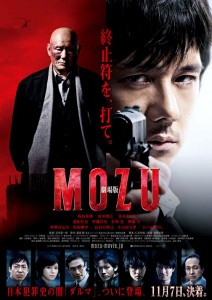
“Mozu” Japanese Theatrical Poster
Director: Eiichiro Hasumi
Writer: Go Osaka, Kosuke Nishi
Producer: Mamoru Inoue, Akira Morii
Cast: Hidetoshi Nishijima, Takeshi Kitano, Teruyuki Kagawa, Yoko Maki, Yusuke Iseya, Tori Matsuzaka, Hiroki Hasegawa, Fumiyo Kohinata, Sosuke Ikematsu, Atsushi Ito
Running Time: 116 min.
By Paul Bramhall
Takeshi ‘Beat’ Kitano is easily one of the most recognizable faces in Japanese cinema, directing a number of movies that are rightfully considered masterpieces. When he acts, it’s usually also in his own productions, so whenever news emerges that Kitano is set to appear in a movie other than his own, it draws plenty of interest. From an eye-patched hitman in Gonin, to the teacher in Battle Royale, to a raging Korean immigrant in Blood and Bones, all are roles which once seen, are difficult to imagine anyone other than Kitano playing. 2015 then was rather special, as it didn’t just provide one movie with Kitano in a role being directed by someone other than himself, but two. One was the dark drama, While the Women are Sleeping, while the other came in the form of a spin-off movie from a popular TV mini-series, Mozu – The Movie.
Interestingly, main actor Hidetoshi Nishijima is also the star of While the Woman are Sleeping, and has worked with Kitano before, featuring in his 2002 production Dolls. In Mozu – The Movie Nishijima and Kitano are pitted against each other, as Nishijimi plays the role of an exhausted cop still trying to get over the recent death of his wife and child, believed to have been murdered on the orders of a mysterious figured called Daruma, played by Kitano. Unfortunately the movie does itself no favors, thanks to providing precisely zero information for those that haven’t seen the TV mini-series (which itself was based on a book, written by Go Osaka). All we get is an opening which see’s Nishijima moodily sat in a semi-lit bar, one in which he’s the only customer, as he drunkenly drops in and out of consciousness while thinking about his murdered loved ones.
Despite being inebriated, Nishijima happens to stumble across a traffic accident, which turns out to be a kidnap attempt of a diplomat from a made-up country called Penam, and her autistic daughter. He manages to save the daughter, and packs her off to his private detective friend, played by Teruyuki Kagawa. At the same time, an office building is held to ransom, involving low budget CGI explosions and terrorists screaming in an irritatingly high pitched fashion, seemingly to distract from the kidnap attempt. Some nonsense is also revealed about images of Daruma, the character Kitano plays, being inserted into people’s minds by a shady organization. Coherency and logic don’t appear to be high on the agenda for Mozu – The Movie, with none of what’s happening onscreen given much explanation or reason. Throughout all of this trauma, Nishijima remains completely poker faced, decked out in his uninspired salary man style white shirt and black tie, ensuring his character remains as uninteresting and dull as possible.
Events proceed in a way which see’s things going from bad to worse. The autistic daughter is effectively portrayed as a walking zombie, incapable of any type of human interaction or communicating beyond grunts and shrieks. Chocolate proved that it’s perfectly possible to have an autistic main character, and Jija Yanin imbued the role with plenty of nuance and personality traits, but not so here. In a scene which is particularly awkward, it’s explained that she’s mentally handicapped, and then in the same conversation, there’s a completely meaningless and throwaway line added in which a point is made of her only being half Japanese. Because of course, in a country were mental health is still a relatively taboo topic in mainstream media, it’s important to point out that such a character couldn’t possibly be 100% Japanese.
As a result of acting as her guardian, ultimately Teruyuki Kagawa’s own daughter gets kidnapped, and is whisked away to the fictional South East Asian country of Penam. Nishijima and Kagawa follow the abductors trail in hot pursuit, however when they finally land in the Penam, it turns out to be Manila in the Philippines. We’re not supposed to know that of course, but the hundreds of jeepneys driving down the streets, the road signs that have suburbs in Manila written on them, and just the general fact that people are speaking Tagalog, kind of give it away. Why they chose to pass off Manila as some made-up Asian melting pot is beyond me. It’s a city which is recognizable in much the same way Hong Kong or Kuala Lumpur are, but perhaps it’s portrayal as a safe-haven for criminal masterminds led the overly-sensitive Japanese studios to call it by a different name. Throughout all of this drama and country hopping, Nishijima’s facial expression has still yet to change, and he hasn’t once thought to change out of his white shirt and black tie combo.
Their jaunt in the Philippines at least allows the budget to afford some real explosions, and there’s even some hand to hand combat thrown in, but it all seems so lifeless and droll, that it’s hard to get excited about. The script doesn’t help, which takes itself far too seriously. Characters who’ve only been onscreen for a couple of minutes proclaim wince worthy lines such as, “Why do we do what we do?” Other times, it actually has characters explaining through dialogue what’s happening onscreen. In one scene Nishijima fires a gun into the air, in order to get himself arrested, knowing the corrupt cops will take him to their boss that he’s been trying to track down. This is exactly what happens, and when they drop him in front of the boss, he’s asked why he fired a gun in order to get himself arrested. Nishijima then explains that he wanted to get himself arrested, as he knew he’d be taken to the boss. Seriously, we know, it just happened onscreen, it’s like they mixed up script notes with character dialogue.
In between the dual running plots of attempting to rescue Kagawa’s daughter while protecting the autistic daughter of the diplomat (the plot point of Kitano’s image being inserted into people’s minds is never mentioned again), it’s revealed that the organisation behind the kidnap attempt is also the same one responsible for the death of Nishijima’s loved ones. What are the chances? It turns out that this organisation is seemingly the secret power that keeps Japan running the way it does, and they all report to a mysterious ‘Sensei’, who must be kept alive at all costs. The Sensei and Daruma of course turn out to be the same person, Kitano, who is shown to be a bald headed heavily scarred old man on his death bed, desperately in need of several internal organ transplants, of whom the autistic child is the closest match.
Despite the bulk of Mozu – The Movie taking place in Manila, I mean Penam, late in the movie the action eventually moves back to Tokyo. One of my biggest problems with the plot comes once proceedings re-locate back to Japanese soil, as an event takes place which effectively makes the whole Philippines set segment null and void. It would be a spoiler to go into any further detail, but as a viewer it’s incredibly frustrating when an event plays out that renders the past hour of what you’ve watched all but pointless. It feels like an insult to the audiences intelligence, and effectively means that an almost 2 hour movie could have been told in half the time, but then I guess they wouldn’t have been able to justify a feature length movie if that was the case.
The other big problem is Kitano, or should I say, lack of. Despite appearing so prominently on all of the promotional material for Mozu – The Movie, he clocks in a total screen-time of less than 10 minutes. During the Tokyo premiere of the movie, the man himself spoke up in his usual sardonic manner – “I went into the dressing room not knowing a thing. They had me wear a bald wig and made me up to look badly scarred. I was thinking they could have gotten anyone to do that.” Whether sarcastic or not, his remarks are on point, as his character appears for such a brief amount of the runtime, hardly conveying any impact at all, that it could just as well have been played by any other ageing Japanese actor. Needless to say, for those going into Mozu – The Movie for Kitano’s presence, it’ll be best not to bother.
However even with the expectations of a Kitano movie aside, there’s not much left to recommend. Everything about Mozu – The Movie smells like a quick cash-in on a popular TV series, a cash-in which successfully saw the many salary men and housewives who watched it put the movie at number one on its opening weekend in Japan. It’s a problem that plagues Japanese mainstream cinema, in that quick cash-in’s do exactly that – bring in the cash. There are plenty of other TV shows that have spawned feature length movies – SP: Security Police, Unfair, and Bayside Shakedown – to name just a few, and rarely do they stray far from their TV roots, often feeling like extended versions of a TV episode. However as long as there’s still an audience which will fill out the theaters, this kind of safe, unexciting, TV friendly cinema is here to stay.
Paul Bramhall’s Rating: 2/10




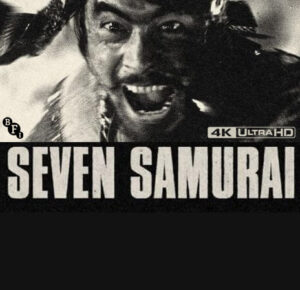


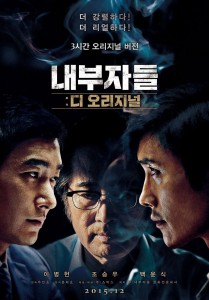


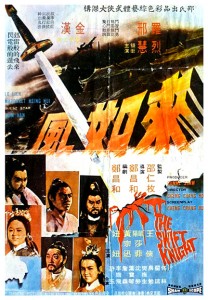
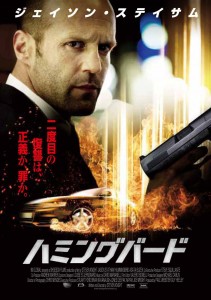

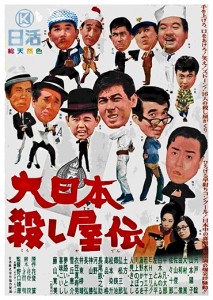





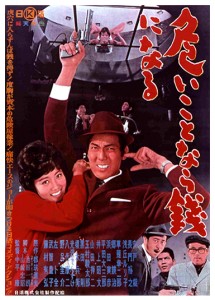



Be the 1st to Comment